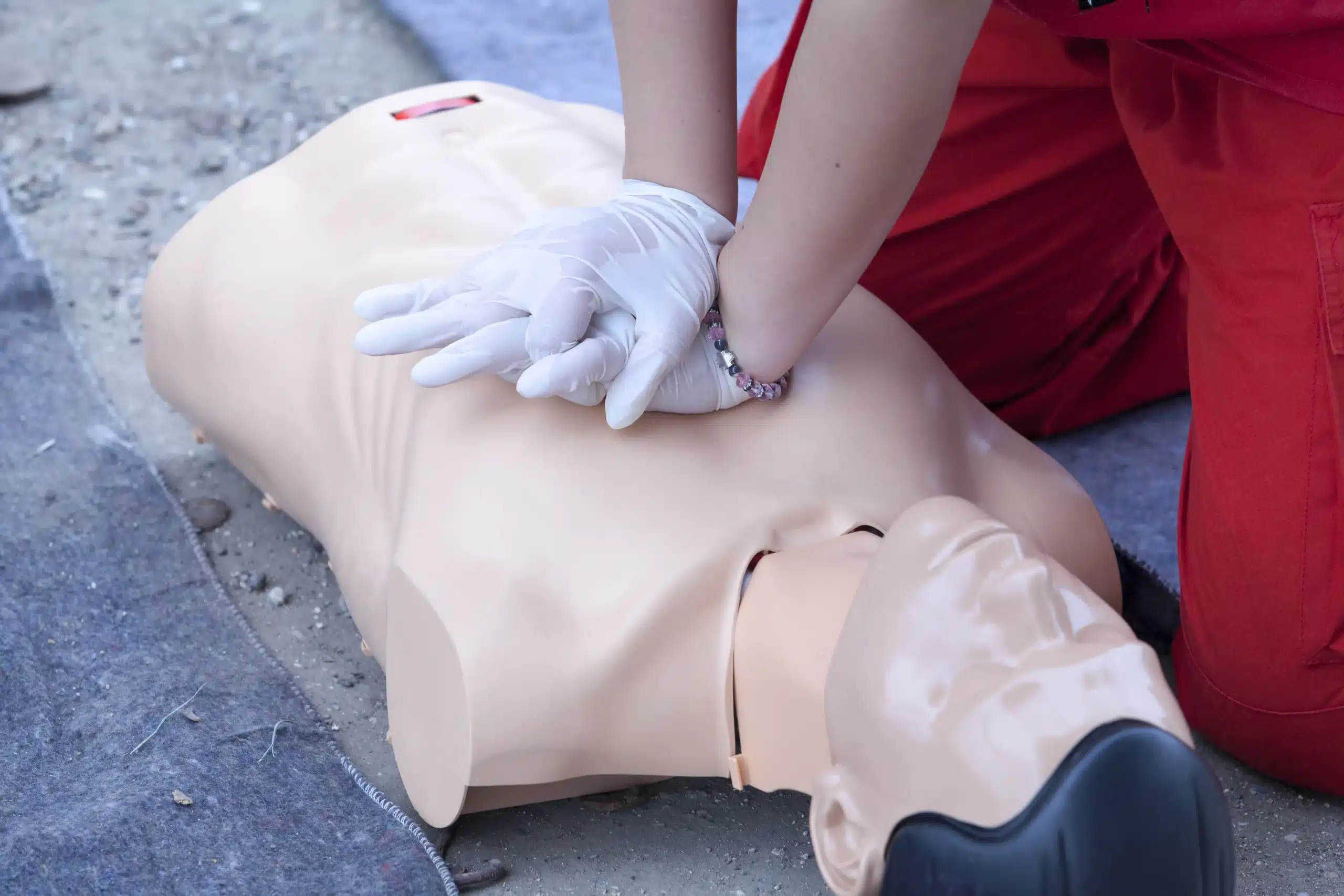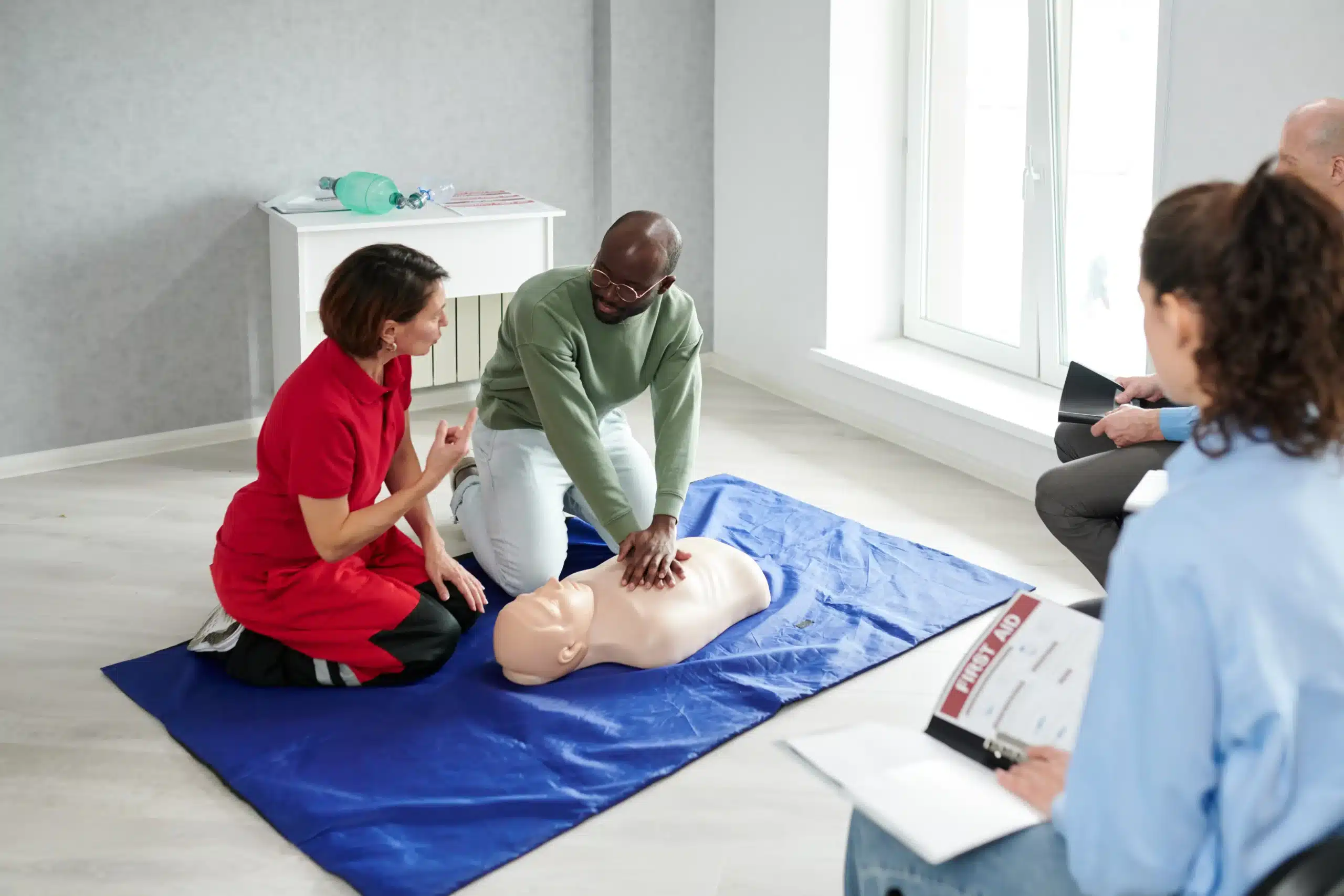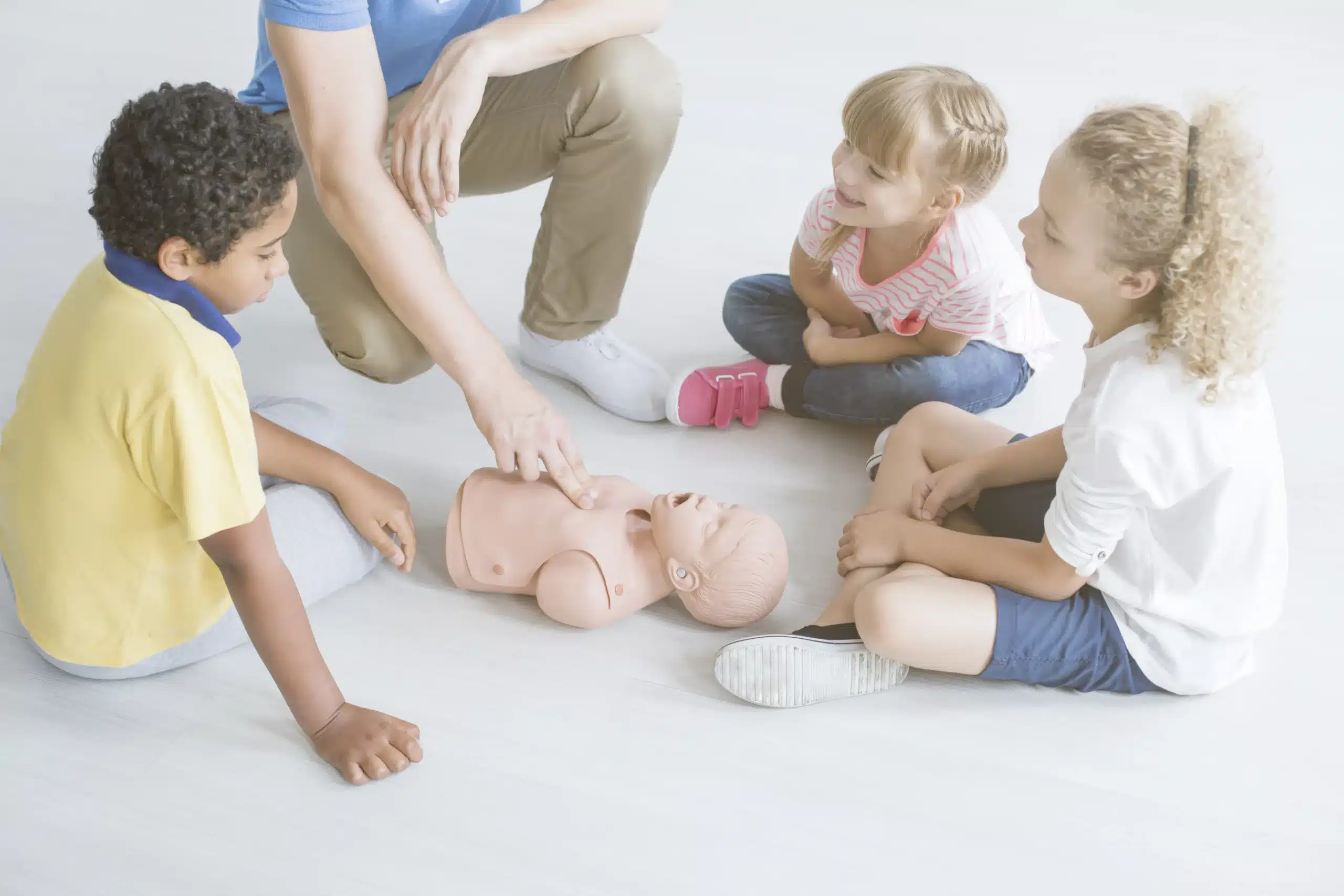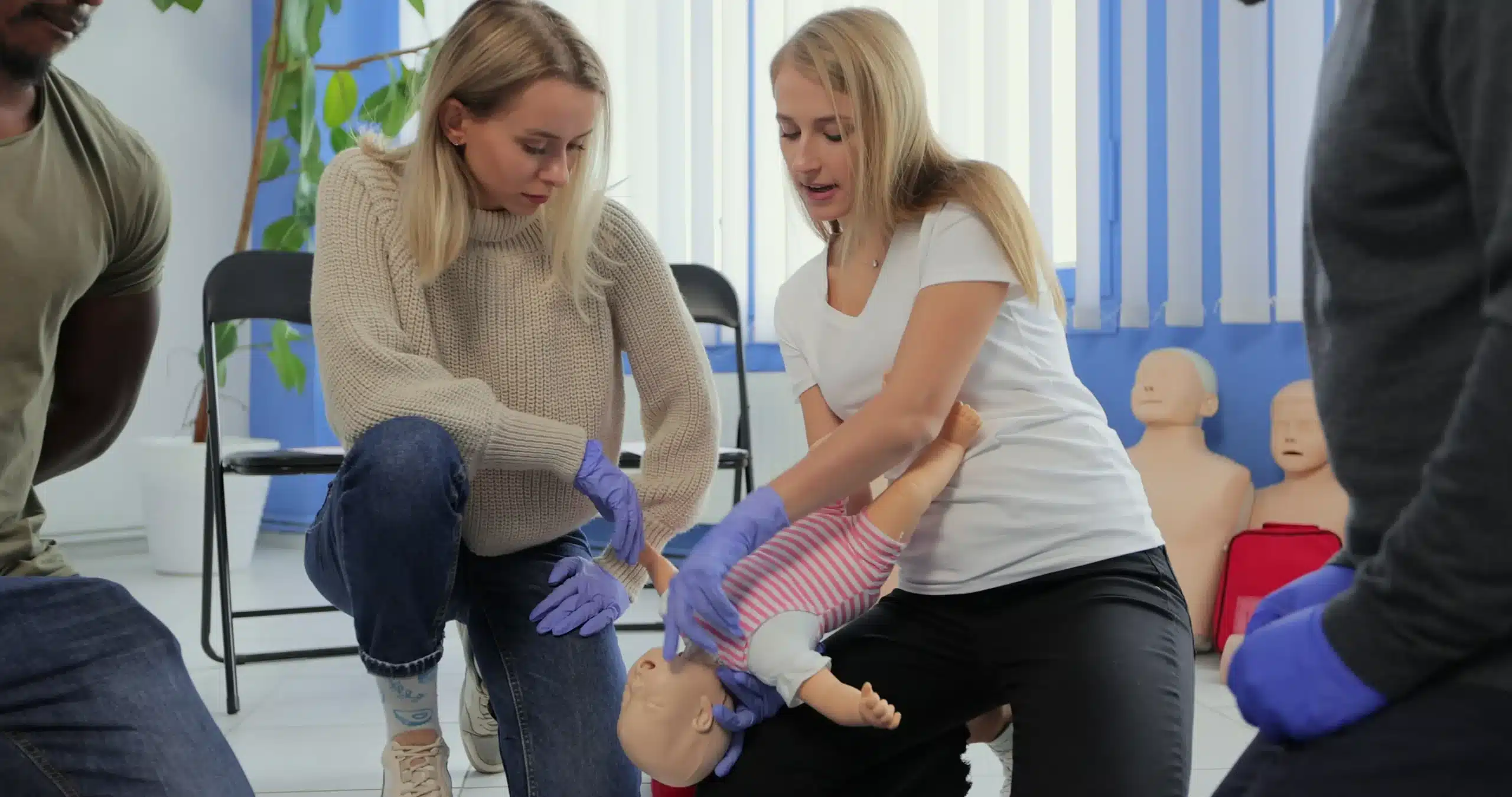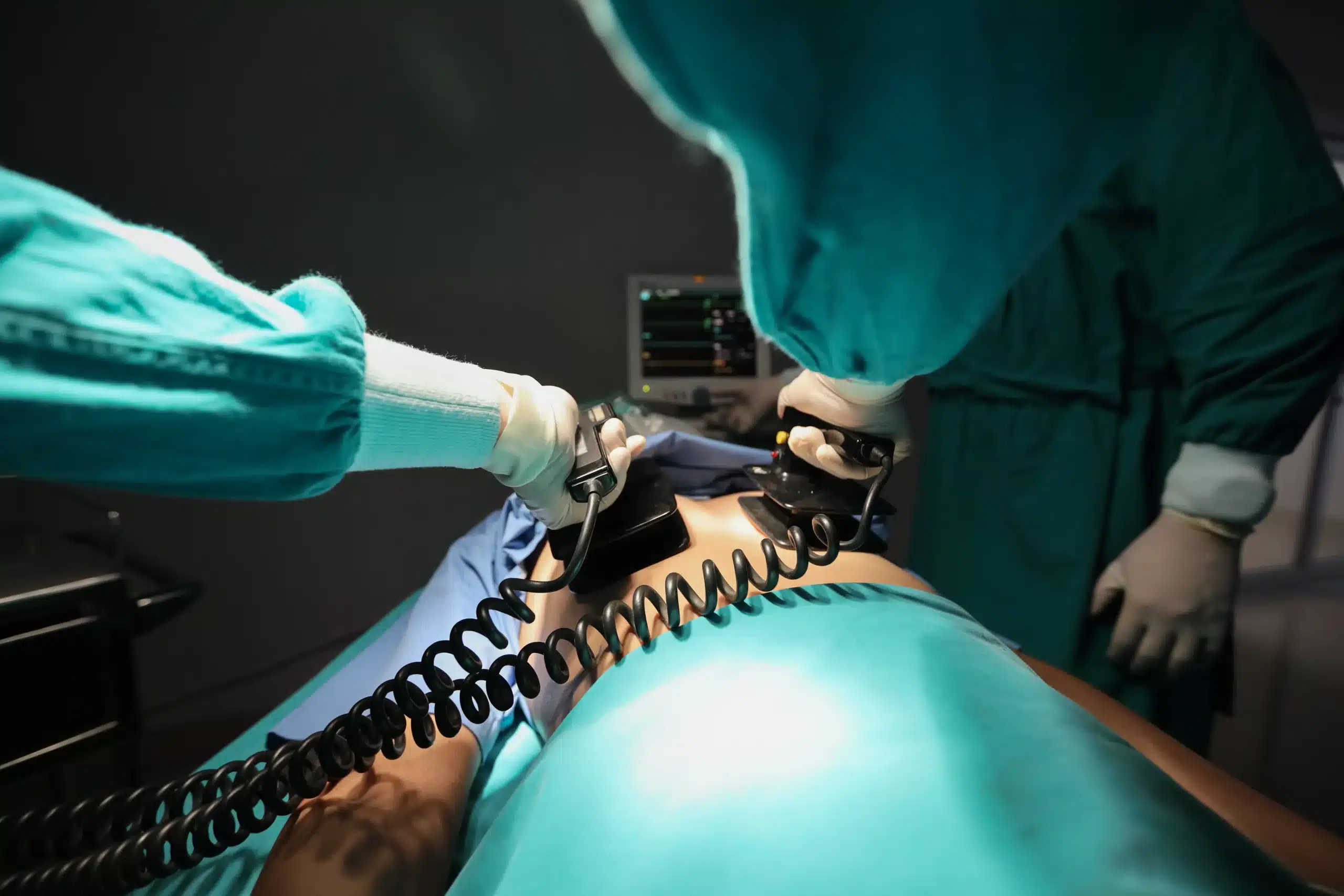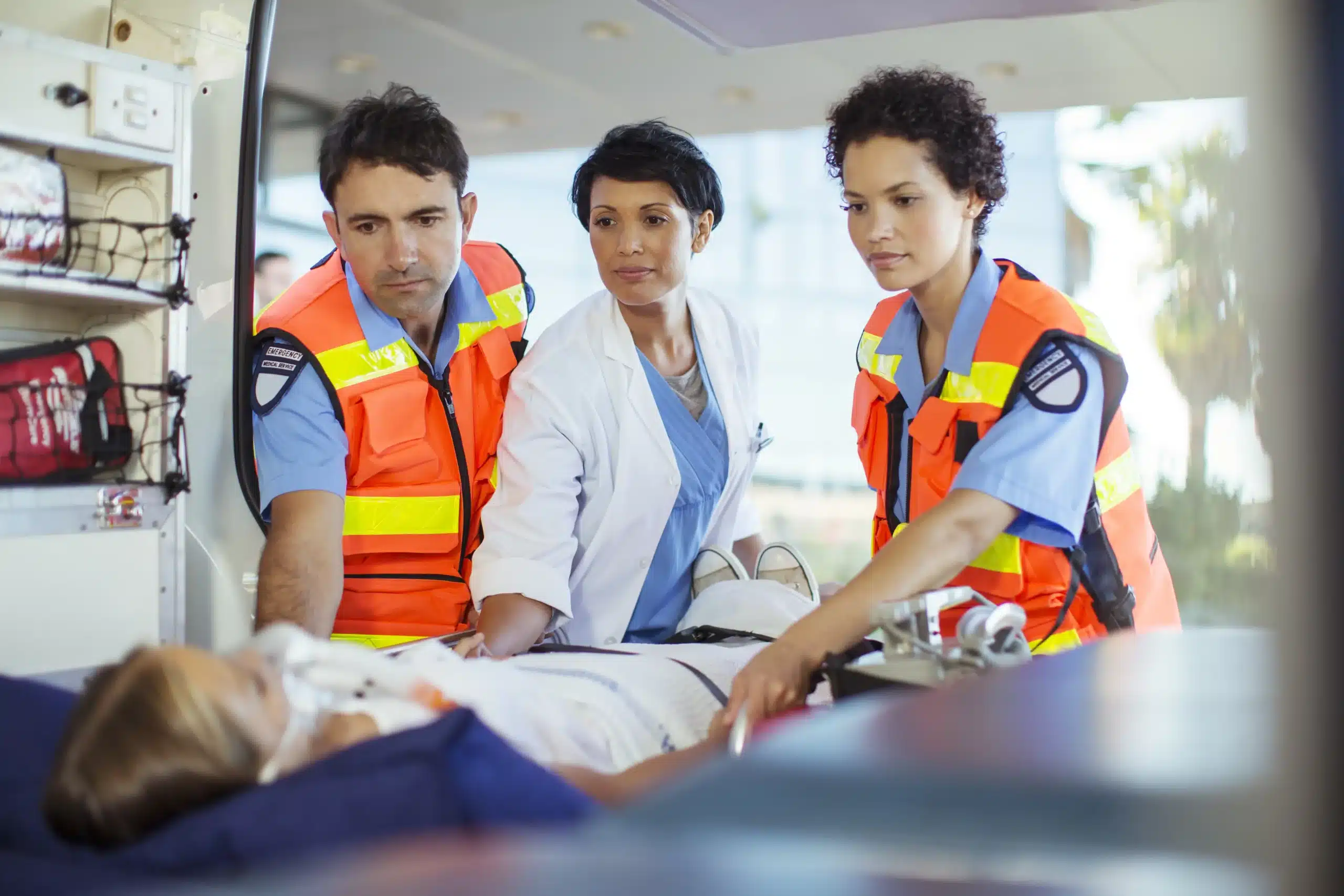Are you a healthcare professional in Dublin looking to enhance your emergency response skills? Advanced Cardiac Life Support (ACLS) training is a vital step in providing comprehensive care during cardiovascular emergencies. This article serves as your complete guide to ACLS certification in Dublin. We’ll cover the key components of ACLS training, explore reputable course providers in the area, and discuss the benefits of obtaining and maintaining your certification. We’ll also delve into the local regulations and recognition of ACLS in Dublin, highlighting its alignment with international standards for advanced cardiac life support.
Key Takeaways
- ACLS is crucial for healthcare providers: It equips you with advanced skills to manage cardiovascular emergencies, leading to better patient outcomes and career advancement. Find an accredited course that combines theory and hands-on practice.
- Choosing an ACLS course requires research: Consider accreditation, instructor experience, flexible scheduling, hands-on simulations, and comprehensive materials. Explore blended learning and group discounts to save time and money.
- Maintaining your ACLS certification is an ongoing process: Stay up-to-date on the latest guidelines and renewal requirements. Continuing education opportunities can deepen your expertise and show your dedication to excellent patient care.
What is ACLS?
ACLS stands for Advanced Cardiac Life Support. It’s a set of clinical guidelines and protocols developed by the American Heart Association (AHA) for managing cardiac arrest and other cardiovascular emergencies. Think of it as a comprehensive toolkit of knowledge and skills healthcare providers use to systematically assess, stabilize, and treat patients during these critical events. It goes beyond basic life support (BLS) with a greater focus on teamwork, effective communication, and high-performance resuscitation techniques.
Key ACLS Training Components
ACLS courses cover a broad spectrum of topics essential for managing cardiovascular emergencies. You’ll learn advanced airway management techniques, including intubation and how to use specialized airway devices. A significant portion of the training focuses on rhythm recognition and interpretation of electrocardiograms (ECGs). This helps healthcare providers quickly identify and address life-threatening arrhythmias. The course also covers the appropriate administration of medications used in emergency cardiovascular care, emphasizing correct dosages, routes, and potential side effects. Beyond these core elements, ACLS training addresses the effective management of strokes, acute coronary syndromes (ACS), and other related emergencies.
Importance of ACLS in Emergency Care
In high-pressure emergency situations, especially those involving cardiovascular events, up-to-date ACLS training can significantly impact patient outcomes. These skills empower healthcare professionals to rapidly assess a patient’s condition, make informed decisions, and implement life-saving interventions. Studies consistently show that effective ACLS implementation improves survival rates and reduces the severity of long-term complications following a cardiac arrest. ACLS certification demonstrates a commitment to providing high-quality patient care and is often a requirement for many healthcare roles. For healthcare providers in Dublin, obtaining ACLS certification is not just a credential—it’s a vital tool for saving lives.
Top ACLS Course Providers in Dublin
Finding the right Advanced Cardiovascular Life Support (ACLS) course is crucial for healthcare professionals. Dublin offers a variety of reputable training centers. Here’s a closer look at some of the top providers:
Safety Training Seminars
Safety Training Seminars, a woman-owned and authorized AHA Training Center, offers ACLS certification alongside other American Heart Association courses like BLS, PALS, CPR, and First Aid. They prioritize high-quality instruction and convenient scheduling, with courses offered daily throughout Dublin and nearby areas.
Code Blue
Known for flexible scheduling, Code Blue provides a two-day ACLS course accredited by both the Irish Heart Foundation and the American Heart Association. This dual accreditation ensures their training meets international standards and accommodates busy healthcare providers. You can learn more about available courses on the Livermore CPR Classes blog.
Royal College of Surgeons in Ireland (RCSI)
The Royal College of Surgeons in Ireland (RCSI) offers a comprehensive two-day ACLS course developed in collaboration with the Irish Heart Foundation. This program adheres to the American Heart Association’s ACLS guidelines.
Irish Heart Foundation
The Irish Heart Foundation partners with training providers like Code Blue to deliver the ACLS Provider course, ensuring access to high-quality instruction in Dublin.
Medicall
Medicall Ambulance Service, an approved training site for both the Irish Heart Foundation and the American Heart Association, provides a two-day ACLS Provider course. Their program focuses on equipping healthcare professionals with practical skills and knowledge for managing cardiovascular emergencies.
ACLS Course Structure and Content
The ACLS course equips healthcare professionals with the knowledge and skills to manage cardiopulmonary emergencies effectively. It blends theoretical learning with hands-on simulations, ensuring you can apply your knowledge in real-world scenarios.
Theory and Practical Simulations
ACLS courses aren’t just about lectures. They combine classroom learning with realistic simulations of emergency scenarios. This immersive approach allows you to practice your skills in a safe environment, building confidence and competence in managing cardiac arrests, strokes, and other critical situations. As noted by the Royal College of Surgeons in Ireland, the ACLS course blends classroom learning with simulations of real-life scenarios. This hands-on experience is invaluable for translating theoretical knowledge into practical action.
Assessments and Course Duration
Successful completion of the ACLS course involves demonstrating proficiency in core areas like Basic Life Support (BLS), ECG interpretation, and basic emergency pharmacology. The course typically spans two days, with each day running from early morning to late afternoon. For example, Code Blue highlights their ACLS course duration as two full days. This intensive format ensures comprehensive coverage of the curriculum and ample opportunity for practice and assessment. ACLS certification is designed for healthcare providers such as doctors, nurses, paramedics, and other allied health personnel.
Blended Learning Options
Many ACLS courses now offer a blended learning format, combining online learning with in-person skills sessions. This flexible approach allows you to study the theoretical content at your own pace before demonstrating your skills in a practical setting. You might spend several hours engaging with online materials, including ECG tutorials and quizzes, followed by a shorter in-person skills test. Dublin CPR Classes, for example, prepares students with online materials before the hands-on portion. This blended approach offers convenience and ensures thorough preparation for both the theoretical and practical aspects of the course.
ACLS Certification: Prerequisites and Eligibility
Before you jump into an Advanced Cardiac Life Support (ACLS) course, you’ll need a few things sorted out. Understanding the prerequisites ensures you’re ready to make the most of this advanced training.
BLS Certification Requirement
First things first, you’ll need a current Basic Life Support (BLS) certification. This foundational course covers essential CPR techniques and basic life support protocols. Think of it as the bedrock for ACLS training. A solid understanding of BLS principles is crucial for grasping the more complex procedures you’ll learn in ACLS. Make sure your BLS certification is up-to-date before enrolling in an ACLS course. We offer BLS certification right here at Safety Training Seminars.
Target Audience and Professional Requirements
ACLS courses are designed for healthcare professionals who regularly deal with cardiac emergencies. This includes physicians, nurses, paramedics, and other allied health personnel. If you’re a doctor, especially in emergency medicine or a specialty involving cardiac care, ACLS certification is particularly relevant. It equips you with the advanced skills to manage cardiac arrests and other cardiovascular emergencies effectively. Even if you’re not directly involved in emergency care, having ACLS training can be a valuable asset in any healthcare setting. It demonstrates your commitment to providing the highest standard of patient care. We welcome students from Dublin, Livermore, and Mountain House, CA.
Cost of ACLS Courses in Dublin
Naturally, cost is a factor when choosing an ACLS course. Let’s break down the typical expenses and explore ways to find the best value.
Average Pricing and Payment Options
ACLS course fees in Dublin vary based on the training provider, the course format (in-person versus blended learning), and included materials. Contact a few different training centers—like Safety Training Seminars, RCSI, and Irish Heart—to compare pricing and what’s covered by the course fee. This will help you make an informed decision. Many providers offer payment plans or accept various payment methods, so ask about options that suit your budget.
Group Discounts and Promotions
If you’re training with a group—perhaps colleagues from a hospital or clinic—inquire about group discounts. Many training centers offer reduced rates for groups of five or more. ACIA, for example, offers discounts up to 20% off their individual rates. This can be a significant saving for larger groups. Also, ask about any special promotions or limited-time offers that could further reduce the cost.
Low Price Guarantees
Look for training centers that offer a low price guarantee. This ensures you’re getting the most competitive price for your ACLS certification. Some providers, like NHCPS, also offer bundled courses, such as ACLS and PALS or BLS combined, at a discounted rate. Bundling can be a smart way to save if you need multiple certifications. Safety Training Seminars is another provider committed to competitive pricing.
Benefits of ACLS Certification for Dublin Healthcare Professionals
For healthcare professionals in Dublin, holding a current Advanced Cardiovascular Life Support (ACLS) certification offers several key advantages. It’s not just a credential—it signifies your dedication to providing excellent patient care and furthering your career.
Career Advancement and International Recognition
ACLS certification is often a prerequisite for advanced positions in healthcare. It demonstrates a deeper understanding of cardiovascular emergencies and a higher skill level in managing them. Many employers seek candidates with ACLS certification, recognizing its importance in critical care settings. Certifications from organizations like the American Heart Association are recognized internationally, creating opportunities in over 50 countries. This global recognition can be invaluable for healthcare professionals seeking career advancement or considering working abroad.
Improved Emergency Response Skills
ACLS courses provide healthcare providers with the advanced skills to effectively manage cardiovascular emergencies. These courses cover a comprehensive range of topics, from basic life support techniques like CPR and AED use to more advanced procedures such as airway management, rhythm recognition, and administering medication. In critical situations, having this training can significantly improve patient outcomes. The ability to confidently and competently respond to complex cardiac emergencies is essential for any healthcare professional working in a fast-paced clinical setting.
Continuing Education Credits
Staying current with the latest medical advancements is crucial for career growth. ACLS certification often provides continuing education credits (CPD/CEU), which can be applied toward license renewal or other professional development requirements. You can earn up to 16 hours of CPD/CEU credits through ACLS certification, making it a convenient and efficient way to fulfill continuing education obligations while simultaneously enhancing your clinical skills.
Choosing the Right ACLS Course in Dublin
Finding the right ACLS course can feel overwhelming with so many options in Dublin. Here’s what to consider when making your decision:
Accreditation and Instructor Qualifications
Look for courses accredited by reputable organizations like the American Heart Association or the Irish Heart Foundation. For example, the Irish Heart Foundation offers an ACLS Provider course in Dublin, delivered by ACLS Training Services t/a Code Blue. Accreditation ensures the course content reflects the latest resuscitation guidelines. Experienced instructors, ideally with a background in emergency medicine, provide valuable real-world insights and more effective training. Instructors’ qualifications matter, so feel free to ask about their experience and credentials.
Course Flexibility and Hands-On Practice
Balancing work and other commitments makes flexibility essential. Many Dublin ACLS course providers offer flexible scheduling, including weekend and evening classes, and blended learning options that combine online modules with in-person skills sessions. Hands-on practice is crucial for mastering ACLS skills. Choose a course with ample opportunities for simulations and scenario-based training. This practical experience builds confidence and competence in managing real-life emergencies.
Quality of Course Materials
Comprehensive course materials are key to successful learning. Look for courses that provide up-to-date manuals, online resources, and other learning aids. ACLS course fees in Dublin can vary, so compare pricing and what’s included. Contact a few different training centers like Safety Training Seminars, RCSI, and Irish Heart to understand cost versus value. Ask about what’s covered in the course fee, such as materials, certification fees, and any extra resources. This due diligence ensures you get the most out of your investment.
Maintaining Your ACLS Certification
Once you’ve earned your ACLS certification, staying current is key. Medicine is a constantly evolving field, and keeping your skills sharp ensures you’re prepared to provide the best possible care. This section covers how to maintain your ACLS certification through renewal and continuing education.
Renewal Process and Continuing Education
ACLS certification is typically valid for two years. Before your certification expires, you’ll need to complete a renewal course. This refresher covers any updates to the guidelines and reinforces essential skills. Check with your certifying body, such as the American Heart Association, for specific renewal requirements and deadlines. Many providers, including Safety Training Seminars, offer these courses to make the process convenient. Planning ahead and scheduling your renewal in advance helps avoid any lapses in your certification.
Continuing education is a crucial part of staying up-to-date in healthcare. While not always mandatory for ACLS recertification, pursuing additional training in related areas can significantly enhance your expertise. Consider exploring advanced courses or workshops focused on specific emergency scenarios or new treatment protocols.
Staying Updated with Guidelines
Staying informed about the latest ACLS guidelines is essential for providing effective care. Guidelines are periodically updated to reflect the most current research and best practices in resuscitation. Subscribing to newsletters from reputable organizations like the American Heart Association or following relevant medical journals can help you stay informed about any changes. Additionally, many ACLS providers incorporate the latest guideline updates into their renewal courses, ensuring you’re always practicing according to the most current recommendations. In critical situations, having up-to-date ACLS training can make all the difference. By prioritizing both renewal and continuing education, you can maintain your ACLS certification and confidently provide high-quality care in emergency situations.
ACLS Certification and Dublin Healthcare Standards
Local Regulations and Recognition
In Dublin, ACLS certification is a recognized credential for healthcare professionals. The Royal College of Surgeons in Ireland (RCSI) plays a significant role in upholding high standards for ACLS training. Their ACLS course adheres to the American Heart Association (AHA) guidelines and is often run in conjunction with the Irish Heart Foundation. This collaboration ensures the training is relevant to the Irish healthcare system and meets local best practices. The involvement of a respected institution like the RCSI reinforces the importance of ACLS certification within the Dublin healthcare community, providing assurance to employers and patients that certified professionals can manage cardiac emergencies.
Alignment with International Standards
While local recognition is essential, ACLS certification in Dublin also aligns with international standards, primarily those set by the American Heart Association. This alignment is crucial for several reasons. It ensures that healthcare professionals in Dublin have universally accepted knowledge and skills in advanced cardiac life support. Providers like Code Blue offer ACLS courses accredited by both the Irish Heart Foundation and the AHA, making the certification valid in many countries. This international recognition enhances the quality of care within Dublin and allows professionals to practice elsewhere, knowing their certification is recognized globally. This commitment to international standards demonstrates Dublin’s dedication to providing high-quality healthcare.
Related Articles
- ACLS Courses in Dublin: A Complete Guide – Livermore CPR Classes
- ACLS Certification in Livermore: Your Comprehensive Guide – Livermore CPR Classes
- ACLS HeartCode in Livermore: Find Training & Costs – Livermore CPR Classes
- ACLS Courses in Mountain House: Your Complete Guide – Livermore CPR Classes
- Online ACLS Classes in Livermore: Your Guide – Livermore CPR Classes
Frequently Asked Questions
What exactly does ACLS training involve? ACLS courses blend theoretical learning with hands-on practice. You’ll learn about advanced airway management, ECG interpretation, medication administration, and how to manage various cardiovascular emergencies. The courses often include realistic simulations to help you apply your knowledge in a safe environment before facing real-life emergencies.
Why is ACLS certification important for healthcare professionals in Dublin? In Dublin’s fast-paced healthcare environment, ACLS certification is highly valued. It demonstrates a commitment to providing excellent patient care and often opens doors to career advancement. Many employers prefer or require ACLS certification for roles involving emergency or critical care. Plus, the skills you gain can significantly improve patient outcomes in emergencies.
How much do ACLS courses cost in Dublin, and are there any ways to save? Course fees vary depending on the provider and format. It’s always a good idea to contact a few different training centers to compare prices and what’s included in the fee. Look for providers offering group discounts, special promotions, or bundled courses to save money. Some centers also have low-price guarantees, ensuring you get the most competitive rate.
I’m a healthcare professional working in Dublin. How do I choose the right ACLS course for me? When choosing a course, consider accreditation, instructor qualifications, course flexibility, and the quality of materials. Look for courses accredited by reputable organizations like the American Heart Association or the Irish Heart Foundation. Experienced instructors and ample hands-on practice opportunities are also essential for effective learning. Flexible scheduling options, such as weekend or evening classes, can make it easier to fit the training into your busy schedule.
How do I maintain my ACLS certification once I’ve earned it? ACLS certification typically requires renewal every two years. You’ll need to complete a refresher course to stay current with the latest guidelines and maintain your skills. Check with your certifying body for specific renewal requirements. Staying updated with the latest guidelines and pursuing continuing education in related areas can further enhance your expertise and ensure you’re providing the best possible care.
